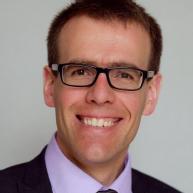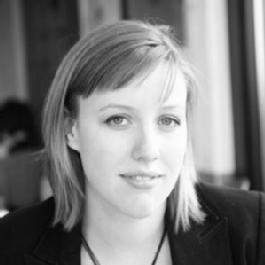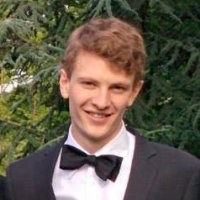Case studies
Jacob Langlands, MPhys 1999-2003

I chose to study Physics because I enjoyed problem solving using mathematics, and I knew that a Physics degree would be a strong foundation for many different careers. When I started my degree at Warwick, I had no idea what career to choose and focussed on enjoying my University experience. At the end of my second year a family friend offered me some summer work experience in a law firm. I enjoyed applying my problem solving skills to the various cases I worked on, and started to consider Law as a possible career path. I also engaged with the University’s Careers Service to understand what kinds of careers I would be suited to, based on my interests, skills and aspirations.
Towards the end of my third year, I had to make a decision about Law because of the application deadlines for the Graduate Diploma in Law (the first step to a Law career for a non-Law graduate). I decided to go for it and was accepted onto a course at the University of Law, Birmingham. During my GDL year, I was very fortunate to secure a training contract with a firm in Stratford-upon-Avon. After completing the Legal Practice Course (a further year’s study), I then trained at the law firm for two further years before qualifying as a Solicitor.
The law firm was taken over in 2010 and I ended up back at the University as a Contracts Officer within the Research Office. I currently work in the University’s Finance Office as the Head of Contracts, overseeing a small team dealing with the University’s commercial contracts.
I really enjoy my job and I get to work with many different people from within and outside of the University. Problem solving is a core part of the role and I get to use the skills developed during my Physics degree on a daily basis.
Jenny Wooldridge, PhD Physics 2007

Did you have a specific career plan or aspiration during your degree – if not what influenced your career decision, was it just seeing an opportunity that appealed, a conversation with an employer/alumni, fate etc etc
Like most I was too engrossed in my PhD work to plan anything to do with my career until the final year. I had one clear objective, however, a swift exit from academia! This led me to a year working in the city for a management consultancy firm before moving back into scientific research in a government owned research organisation, working for National Physical Laboratory. I was drawn to management consultancy through research within the careers service, with the prospect of applying my problem solving abilities combined with the choice to live in London (compared with the requirement to live in any city wherever there was a relevant post doc position going…). It was an invaluable experience, but I missed being in the lab and so sought out the position at NPL.
What (if any) extra-curricular activites/work experience etc did you do during your time at Warwick and did that impact on your career decisions/success? What do you know now that you wished you had known during your degree?
A PhD is a full time job (and then some), so I didn’t undertake any formal work experience during my time at Warwick, other than demonstrating in the undergraduate laboratories. I spent my summers during my undergraduate degree simply working office admin jobs to help pay the bills, which was useful experience in and of itself. However working at NPL we have a steady stream of summer students every year, working all kinds of roles. Looking back I could have gained some more directed work experience if I had done a bit more research starting around the 2nd term each year. Don’t be afraid of approaching organisations directly, scouring their web pages for a real email address to direct a request to (or guessing an email from a name!).
Your career so far, the jobs you have had?
As mentioned above, after leaving Warwick I worked for just over a year as a business analyst at a large management consultancy firm, working on due diligence at the sales stage of applications and business process outsourcing projects, which relied heavily on my number crunching skills and attention to detail, also the ability to see and effectively communicate patterns within large datasets. I joined NPL as a Research Scientist looking at piezoelectric materials, which was a different area of physics to that which I did my PhD in. Starting fresh was a challenge, but I got to use some of the same techniques as I had learned within my time at Warwick, for instance neutron and x-ray scattering. I finished my research career after 7 years as a Senior Research Scientist within the group.
Your current role – to what extent do you use your degree subject knowledge and skills, what are the rewards/challenge?
I recently moved position to work within the programmes team, who are responsible for setting the strategy of the research direction of the laboratory, and assessing the impact of the work that is done. This role really makes use of my background both as a researcher and business analyst. NPL’s key mission is performing science with impact: our 2015 customer survey identified a revenue impact for UK plc of between £470m and £2bn from new products and services that would not have been possible without the research that we do. Innovation is key to a successful, growing economy, and it’s really exciting to be part of the team that steers that work for NPL. The role is challenging in the respect of switching from being a specialist to a generalist – being able to assess the work of research areas that I have no background in.
What advice would you give current students? What should they be doing during their studies to plan their career?
Academic research can be fairly isolating – you work on your individual projects for 3(+) years in order to prove at the end of it during your viva that this work is yours and yours alone. The real world (should you leave academia) absolutely doesn’t work like that. Nobody is going to pay you just for being brainy, you also need to be able to work cooperatively and be an effective communicator. All those soft skills courses are a lot more valuable than you might like to think, so make the most of them whilst you have access to them. The courses run by GRADschools (now called Vitae) are great for this – pro-tip: you don’t have to wait for your third year to attend!
Sam Grubb, MPhys 2010- 2014
Did you have a specific career plan or aspiration during your degree – if not what influenced your career decision, was it just seeing an opportunity that appealed, a conversation with an employer/alumni, fate etc etc
For most of my degree I had no idea what I wanted to do. I enjoyed my studies and considered a PhD initially and did a URSS summer project in computational physics in pursuit of this. However, in my final year I did two programming modules and found I was enjoying those most of all my modules and thus decided to go into software development instead.
What (if any) extra-curricular activities/work experience etc did you do during your time at Warwick and did that impact on your career decisions/success? What do you know now that you wished you had known during your degree?
For my first two years of university I did no extra-curricular activities, just my degree and lots of drinking! At the end of my second year I went to the May careers fair and went to a test as part of an application for a company that I now can’t remember the name of. After completing the test we got given a form to fill out with things such as what roles have I had that show leadership etc. and it was at this point I realised I had very little to talk about and went about changing that for the next year. I then applied for the voluntary role of careers representative for physics which I did for my final two years, and off the back of this I got a position on the physics SSLC and did some temp work at careers fairs and similar things. In my third year I also was on the executive committee for cheese and chocolate society, all of which were good fun and didn’t involve a huge time commitment, but were great to talk about in interviews. I could provide examples from several different roles, particularly being careers representative as I did a variety of different tasks as part of it and they were all good talking points just to get conversation going with the interviewer. Knowing what I do now, I would have got involved sooner, perhaps not intensely in first year, but at least at the end so I was involved in things going into second year.
Your career so far, the jobs you have had
I graduated in 2014 (a year ago as of writing this) and went travelling from September to the end of December in Central and South America. I secured a graduate job in April before this near the end of my final year and started it in January. I’m a software developer at a company called Softwire, based in Kentish Town in London, which has a great atmosphere and people and is generally very fun to work for. I work on several different projects, changing every few months or so, in different programming languages for different clients. It’s a great for learning new skills and I’m gaining a lot of good experience very quickly. There is also a ‘morale budget’ which pays for lots of fun activities just a few of which include Thorpe Park trips, Go Ape, going to the Imax and a 4 day holiday to Crete at an all inclusive resort!
Your current role – to what extent do you use your degree subject knowledge and skills, what are the rewards/challenges
As a software developer I obviously use a lot of skills I learned from my programming modules at university, although Softwire doesn’t actually require any coding experience, just the potential to learn quickly and to be passionate. I have to use the logical reasoning and analytical skills, part of the transferable skills that all physics graduates put on their CV, to work out the best and most efficient way of achieving the goal; there is a very strong emphasis at Softwire on writing good code, not simply code that just achieves the desired result. This is very satisfying when you have written good code and especially when you see its effect in the end product that you produce, for example my first project was for the BBC.
What advice would you give current students? What should they be doing during their studies to plan their career?
I would say working out what you want to do is very important, think about what you enjoy doing most, even if it isn’t directly applicable to the business world, find roles that have similar traits. If you apply to jobs just for the sake of getting a job and have no passion for it at all then the interviewer will likely detect your lack of interest. Make sure you do try to get some extra-curricular activities under your belt that you can talk about during and interview or use in examples on an application. However also don’t go too extreme, I had friends at university that got so involved in societies that they neglected their degree, and getting a good degree is certainly one of the most important things to take from university. Make sure you use their careers services to their full potential should you need help with any of this, they’re always there to help, whether figuring out what you want to do or just by attending careers fairs to discover companies. Finally, if you are job hunting for a while after graduating, it’s a good idea to be productive with the time you have, do something interesting such as travelling or learn a new skill like a language or something computer related. It’s always a good idea to have something to say when an employer asks what you’ve been up to, and can work in your favour if you have done something that is then a good talking point.
Rachel Woodbridge-Sticks, BSc Physics 2014
My experience at Warwick University and after graduation has been very positive. I found that during my Physics degree there was an incredible amount of support but it was also incredibly challenging. As a Physics undergraduate, you will be pushed to think logically and apply a variety of theories to an unfamiliar application – it is difficult but incredibly rewarding when you solve the problem. I have found that whilst employers may not find it particularly useful that I can calculate the probability a particle will be in a particular place at a particular time, the problem-solving skills that this course requires and develops are highly regarded in any industry by any employer. So how does a Physics degree from Warwick differ from other universities’ comparable courses? Firstly, there is an incredible amount of flexibility on the course, particularly in the final year and having completed three years of study I can assure you that by the final year you will be thankful that you can tailor your modules to what interests you most – I couldn’t imagine having to dedicate that much time to subjects I wasn’t as interested in. There is also incredible flexibility to take modules on other courses – I took Spanish and a business module during my time there and have gone down a business-related career path. It is useful in this stage of your life to try different subjects and see what you enjoy. My final point is that you will be surrounded by incredibly intelligent people who will push you to achieve your full potential, there is very little you cannot do with a Physics degree from Warwick.
Rachel is an International Sales Engineer with Geotech UK.

